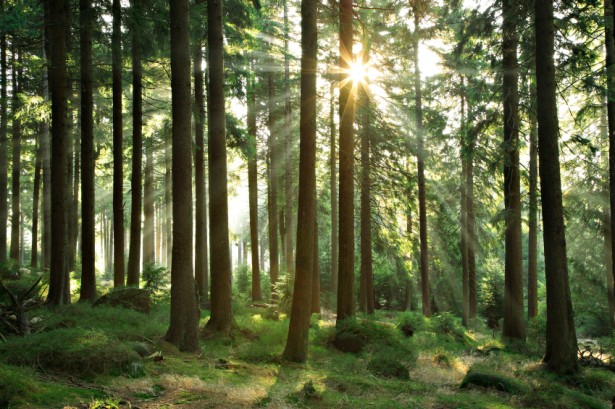Apparently, neither rain or large groups of NGOs descending on them to discuss climate change negotiations serves to deter people in Bonn from enjoying their orchestra in the park. That’s how the Climate Action Network meeting (an umbrella group of NGO actors) was serenaded today by traditional band music. It was all very innocuous until, as the non-governmental observers started launching through a depressing spreadsheet of 50 countries whose positions we’d like to change, the band started playing the theme song from the Good, the Bad and the Ugly. It seemed so appropriate, that I started thinking about the good, the bad and the ugly so far in the Bonn climate change negotiations around forests. Over dinner with some fabulous forest experts, we arrived at the following list.
The Good
 The good news on forests at Bonn is that the world is finally waking up to the fact that deforestation is a major contributor to climate change. The fact that a mechanism for Reduced Emissions from Deforestation and Degradation (REDD) is being included in the talks represents a significant step forward. Politicians and the public are focused on tropical rainforests in a way that hasn’t occurred since the 1992 Rio Earth Summit. And there are a few good possible results, including a prospect that the world may actually start accounting for the massive emissions that are resulting from the destruction of the world’s rainforests, peatlands, and wetland systems in places like Indonesia. There’s also still a faint hope that Annex One countries (those developed countries that signed the Kyoto Protocol) might take responsibility for the past and ongoing degradation of their ancient forests. Forest management accounting may become mandatory under new rules.
The good news on forests at Bonn is that the world is finally waking up to the fact that deforestation is a major contributor to climate change. The fact that a mechanism for Reduced Emissions from Deforestation and Degradation (REDD) is being included in the talks represents a significant step forward. Politicians and the public are focused on tropical rainforests in a way that hasn’t occurred since the 1992 Rio Earth Summit. And there are a few good possible results, including a prospect that the world may actually start accounting for the massive emissions that are resulting from the destruction of the world’s rainforests, peatlands, and wetland systems in places like Indonesia. There’s also still a faint hope that Annex One countries (those developed countries that signed the Kyoto Protocol) might take responsibility for the past and ongoing degradation of their ancient forests. Forest management accounting may become mandatory under new rules.
The Bad
The bad news on forests is that the land rights of the custodians of the forest, including many indigenous peoples, are being excluded from meaningful participation in these negotiations. The limited number of indigenous representatives and observers at the negotiations are routinely out-resourced and out-gunned by professional lobbyists from the logging industry and governments. There are also a stunning number of closed meetings at this negotiation where indigenous participation is excluded, violating internationally recognized rights to free, prior and informed consent.
What’s worse is that there are already examples of how excluding human rights from forest protection mechanisms means dooming forest protection efforts to failure and spurring violence and political instability. This has been vividly illustrated by violence and conflict arising around forest resources this week in Peru and Papua New Guinea.
The Ugly
The ugliest aspects of the forest negotiations are that the governments and corporate actors who are driving deforestation are lining up to write rules to benefit their interests over those of local communities and the atmosphere. While industrialized nations are busy writing rules for forests that will give them freebie “hot air” credits for business as usual logging practices, developing countries are asking themselves why they should be held to higher standards. This dynamic threatens to undermine the entire agreement, potentially making the final outcome of the negotiations worse than business as usual. Forestry (i.e. logging) and sustainable forest management (i.e. logging and the replacement of forests with tree plantations) are being held up by the FAO and their industry cronies as the raison d’etre of the negotiations, ignoring the fact that tree plantations hold far, far less carbon than natural forests. This amounts to hijacking the entire climate negotiations in exchange for access to timber and agricultural subsidies.
Overall, the picture is discouraging. While the existence of the conversation is in itself, hopeful, the process is in danger of being deeply compromised. Countries are unwilling to accept real, scientifically based emissions reductions targets and the process is moving far too slowly. For example, five days into the meeting, the draft text on REDD has yet to be formally discussed.
A colleague told me today that these negotiations should be about saving countries, cultures and critters. Forests are 20 percent of all global greenhouse gas emissions, provide a livelihood for over 1.6 billion people worldwide, and support some of the most biodiverse ecosystems on earth. Developed countries like the United States need to be taking the outcomes of this process more seriously, and we need to start seriously working to hold them to account, now.



